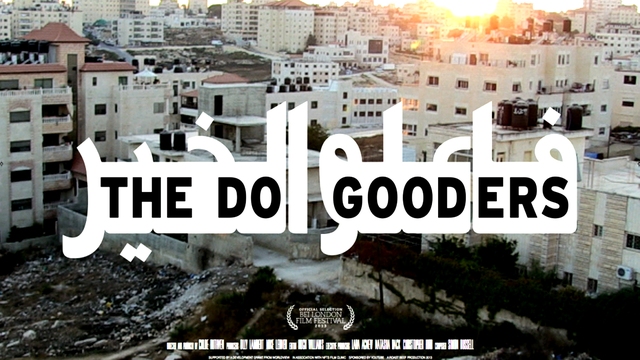Chloe and Lubna set out to uncover the dark side of foreign aid in Palestine. Has the aid given to Palestinians actually helped to maintain the status quo of their occupation by Israel? They observe that altruism can sometimes be cynical.
"Forty five million dollars was spent on this pumping station, we knew this was going to fail", explains a Palestinian engineer working for USAID. Although USAID spends close to a billion dollars on Palestine, "Palestinians are left with only one aquifer, while Israel has the rest", divulges the engineer. As he expands, a facade is arguably in action, for "the aquifers of Palestine are being used more by Israel, than the Palestinians", despite the funding.
"Palestinians don't need aid to enable them to live under occupation, they need the occupation to end". Chloe's guide Lubna insists. She believes aid to be "institutionalised, de-politicised, and used as a shackle to maintain the status quo".
Aid nevertheless comes in many forms to Palestine. Chloe visits 'gap year' volunteers. These "internationals", deal not with challenging occupation, but in giving other forms of aid, including "dance classes", "spiritual gardening", and "women's conversation classes". With more volunteers in Palestine than anywhere else in the world, Chloe asserts "it all looks like a summer camp for gap year students looking for an adventure"; not a struggle for freedom.
"Give me water for my land, not flour and lentils," a farmer says, as he gazes at his UN food aid teeming with weevils. Visiting the farmer whose land is now dust, the gap between intention and result is apparent. In an Israeli settlement only a few hundred metres away, water is abundant. Chloe is left wondering, that although aid can be altruistic, it can conversely be a cynical piece of PR; more about perceptions than actually doing good.
LEARN MORE.
WATCH MORE.
JOIN THE DISCUSSION.

Official Selection: BFI London Film Festival 2013
 Chloe and Lubna set out to uncover the dark side of foreign aid in Palestine. Has the aid given to Palestinians actually helped to maintain the status quo of their occupation by Israel? They observe that altruism can sometimes be cynical.
Chloe and Lubna set out to uncover the dark side of foreign aid in Palestine. Has the aid given to Palestinians actually helped to maintain the status quo of their occupation by Israel? They observe that altruism can sometimes be cynical.
 Official Selection: BFI London Film Festival 2013
Official Selection: BFI London Film Festival 2013


